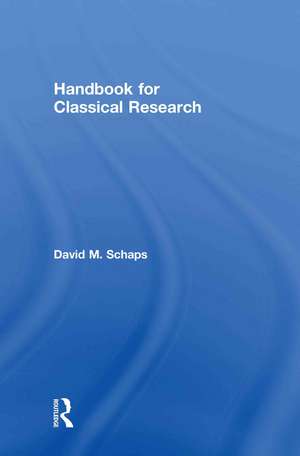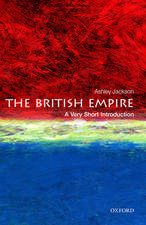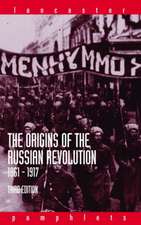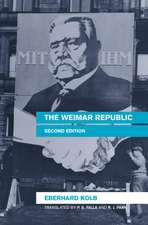Handbook for Classical Research
Autor David Schapsen Limba Engleză Hardback – 16 aug 2010
The book is divided into 7 parts: The Basics, Language, The Traditional Fields, The Physical Remains, The Written Word, The Classics and Related Disciplines, The Classics since Antiquity. Topics covered range from history and literature, lexicography and linguistics, epigraphy and palaeography, to archaeology and numismatics, and the study and reception of the classics.
Guidance is given not only to read, for example, an archaeological or papyrological report, but also on how to find such sources when they are relevant to research. Concentrating on "how-to" topics, the Handbook for Classical Research is a much needed resource for both teachers and students.
| Toate formatele și edițiile | Preț | Express |
|---|---|---|
| Paperback (1) | 311.91 lei 3-5 săpt. | +24.47 lei 7-13 zile |
| Taylor & Francis – 16 aug 2010 | 311.91 lei 3-5 săpt. | +24.47 lei 7-13 zile |
| Hardback (1) | 905.42 lei 6-8 săpt. | |
| Taylor & Francis – 16 aug 2010 | 905.42 lei 6-8 săpt. |
Preț: 905.42 lei
Preț vechi: 1104.17 lei
-18% Nou
Puncte Express: 1358
Preț estimativ în valută:
173.26€ • 185.27$ • 144.45£
173.26€ • 185.27$ • 144.45£
Carte tipărită la comandă
Livrare economică 17 aprilie-01 mai
Preluare comenzi: 021 569.72.76
Specificații
ISBN-13: 9780415425223
ISBN-10: 0415425220
Pagini: 488
Dimensiuni: 156 x 234 x 27 mm
Greutate: 0.86 kg
Ediția:New.
Editura: Taylor & Francis
Colecția Routledge
Locul publicării:Oxford, United Kingdom
ISBN-10: 0415425220
Pagini: 488
Dimensiuni: 156 x 234 x 27 mm
Greutate: 0.86 kg
Ediția:New.
Editura: Taylor & Francis
Colecția Routledge
Locul publicării:Oxford, United Kingdom
Cuprins
Part 1: The Basics 1. The Nature of the Field 2. The Stages of Research 3. Assembling a Bibliography 4. What are your Sources? 5. Book Reviews Part 2: Language 6. Lexicography 7. Grammar 8. Language and Linguistics 9. Using Classical Texts Part 3: The Traditional Fields 10. Reading and Understanding Literature 11. Oratory and Rhetoric 12. Philosophy 13. History Part 4: The Physical Remains 14. Archaeology 15. Mycenaean Studies 16. Numismatics Part 5: The Written Word 17. Epigraphy 18. Papyrology 19. Palaeography 20. Editing Classical Texts Part 5: The Classics and Related Disciplines 21. Art 22. Music and Dance 23. Science and Technology 24. Ancient Religion and Mythology 25. Law 26. Sociology, Anthropology, Economics and Psychology Part 7: The Classics Since Antiquity 27. The Classical Tradition and Classical Reception 28. History of Classical Scholarship Chapter 29. Reconstructing the Ancient World 30. Translation
Recenzii
'Many sections represent the sort of avuncular guidance one might expect from a thesis advisor, with helpful summaries such as "How Laws Were Made in Ancient Rome" and "Reading a Published Papyrus." Libraries will have a hard time deciding whether this handbook belongs in the reference collection, on reserve as a course textbook, or as part of the circulating collection. Institutions supporting programs in classical studies may want copies in all three locations. Summing Up: Essential. Undergraduate classics majors, graduate students, and faculty/researchers.' – Choice
"Schaps has written a remarkable book ...there is something in here to benefit anybody, from beginners to seasoned researchers... [it] is truly a guidebook, as his desire is to produce "an orientation" (xiv) that will lay out the basics of a given field and then point people to the right resources for further study… this book thus represents a significant achievement, one that will likely find a regular place on researchers’ shelves and in graduate seminars for years to come." – Mark Thorne, Bryn Mawr Classical Review
"Schaps has written a remarkable book ...there is something in here to benefit anybody, from beginners to seasoned researchers... [it] is truly a guidebook, as his desire is to produce "an orientation" (xiv) that will lay out the basics of a given field and then point people to the right resources for further study… this book thus represents a significant achievement, one that will likely find a regular place on researchers’ shelves and in graduate seminars for years to come." – Mark Thorne, Bryn Mawr Classical Review
Descriere
The Handbook for Classical Research offers guidance to students needing to learn more about the different fields and subfields of classical research, and its methods and resources.
















